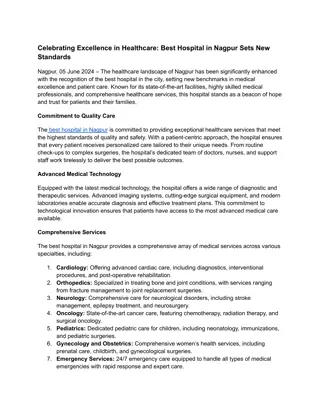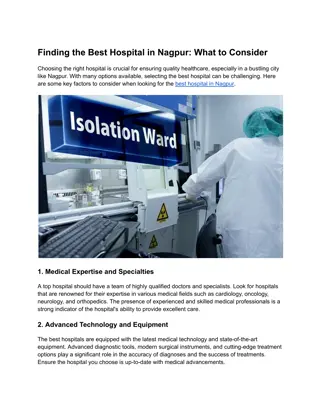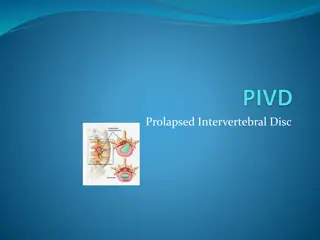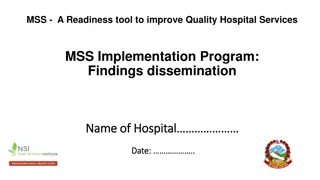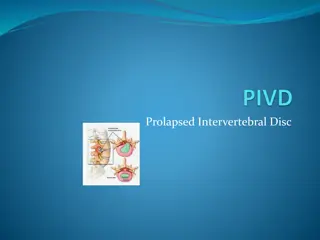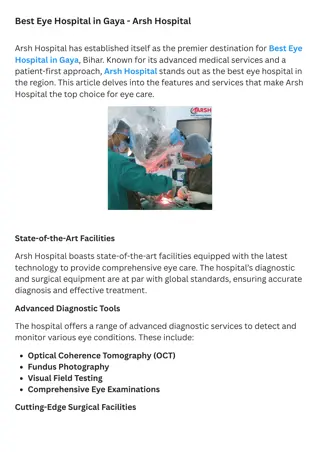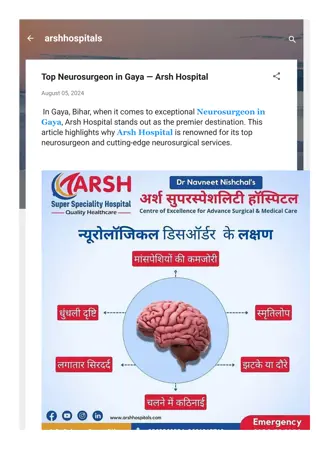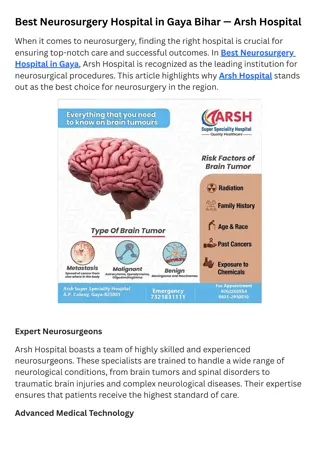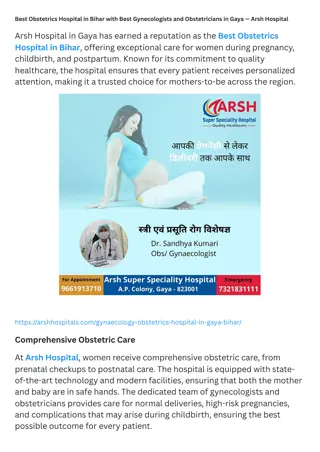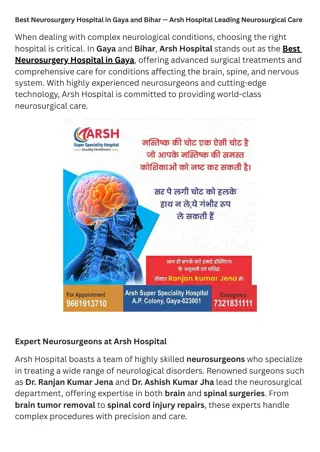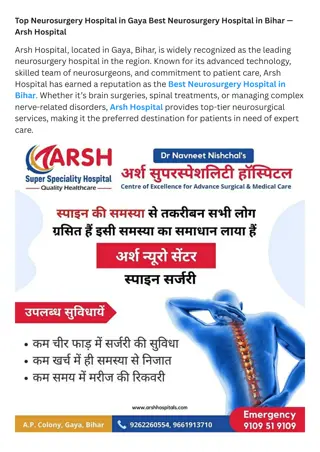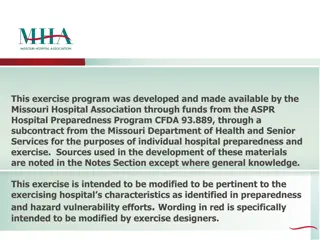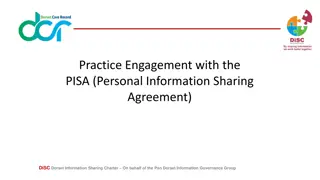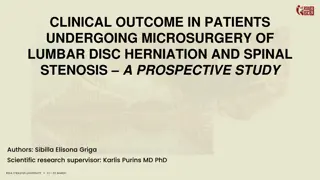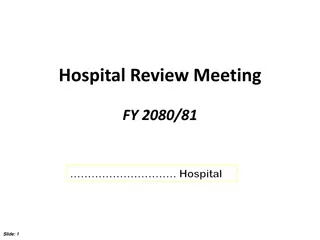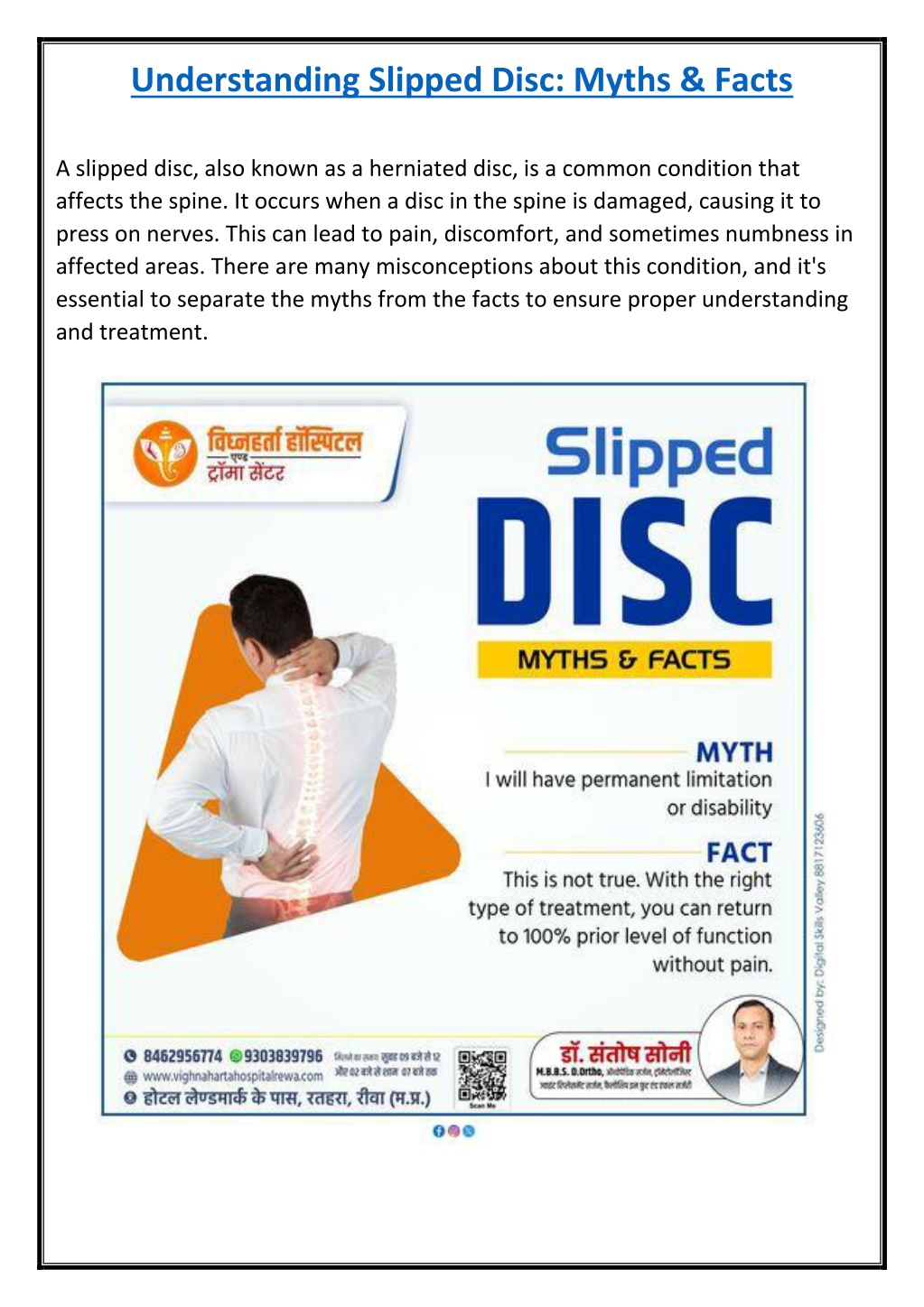
Understanding Slipped Disc Vighnharta Hospital
A slipped disc, also known as a herniated disc, is a common spine problem that can cause significant discomfort and impact daily activities. There are many myths surrounding this condition, leading to confusion and unnecessary worry. At Vighnaharta H
Uploaded on | 3 Views
Download Presentation

Please find below an Image/Link to download the presentation.
The content on the website is provided AS IS for your information and personal use only. It may not be sold, licensed, or shared on other websites without obtaining consent from the author. Download presentation by click this link. If you encounter any issues during the download, it is possible that the publisher has removed the file from their server.
E N D
Presentation Transcript
Understanding Slipped Disc: Myths & Facts A slipped disc, also known as a herniated disc, is a common condition that affects the spine. It occurs when a disc in the spine is damaged, causing it to press on nerves. This can lead to pain, discomfort, and sometimes numbness in affected areas. There are many misconceptions about this condition, and it's essential to separate the myths from the facts to ensure proper understanding and treatment.
Myth: I Will Have Permanent Limitation or Disability Fact: A slipped disc does not mean you will face a lifetime of limitation or disability. With appropriate and timely treatment, it's possible to regain full functionality without pain. Advanced medical therapies and rehabilitation can help you return to 100% of your previous activity level. What is a Slipped Disc? The spine is made up of vertebrae (bones) stacked on top of each other, separated by soft, gel-like discs that act as cushions. These discs absorb shocks and allow the spine to be flexible. When one of these discs gets damaged, the inner gel can protrude, leading to a slipped disc. This can put pressure on the spinal nerves, causing symptoms like: -Pain in the back, neck, or limbs. -Numbness or tingling. -Muscle weakness. Common Symptoms of a Slipped Disc People with a slipped disc may experience various symptoms depending on the affected area. These may include: -Lower Back Pain Often radiating to the legs (sciatica). -Neck Pain That can extend to the arms. -Tingling or Numbness Especially in the hands or feet. -Weakness In the muscles served by the affected nerves.
Why Do Slipped Discs Happen? Several factors contribute to the occurrence of a slipped disc, including: -Aging: As we age, discs lose water content, making them less flexible and more prone to tearing. -Injury: Sudden heavy lifting, accidents, or improper posture can cause a disc to slip. -Weight: Being overweight puts additional stress on the spine. -Genetics: Some individuals may be more susceptible to disc issues due to hereditary factors. Treatment Options While the term "slipped disc" might sound alarming, most cases do not require surgery. Treatments can range from conservative measures to advanced medical interventions: -Rest & Physical Therapy: Initial rest and customized physical therapy exercises can help reduce symptoms. -Medications: Pain relievers, anti-inflammatory drugs, or muscle relaxants may be prescribed. -Epidural Injections: Cortisone injections can relieve severe pain. -Surgery: In cases where conservative treatments fail, surgical options like discectomy or spinal fusion may be considered.
Lifestyle Tips to Prevent Slipped Discs -Maintain Proper Posture: Whether sitting or standing, ensure good posture to reduce spine strain. - -Exercise Regularly: Strengthening core muscles helps support the spine. - -Avoid Heavy Lifting: Use proper techniques when lifting objects to avoid undue stress on the back. - -Stay Active: Regular movement can keep discs healthy and reduce stiffness. Myths About Slipped Discs It's crucial to dispel some common myths related to this condition: -Myth: You Need Bed Rest for a Slipped Disc. -Fact: Prolonged bed rest can weaken muscles and slow recovery. Moderate activity and specific exercises are often recommended. -Myth: Surgery is the Only Solution. -Fact: Most people recover without surgery. Non-surgical treatments are effective for many patients. -Myth: A Slipped Disc Always Causes Severe Pain. -Fact: Some individuals may have a slipped disc without experiencing significant pain or symptoms.
Dr. Santosh Soni M.B.B.S. D.Ortho Orthopedic Surgeon | Traumatologist | Joint Replacement Surgeon | Fellowship in Foot & Ankle Surgery Contact for consultation: ? ? Location: Near Hotel Landmark, Ratahra, Rewa (MP) 918462956774 Website: https://vighnahartahospitalrewa.com/ E-mail: vighnahartahospitalrewa@gmail.com Conclusion A slipped disc can be a painful and challenging condition, but it's not the end of the road. With accurate information, effective treatment, and proactive lifestyle choices, you can manage and even fully recover from a slipped disc. Always consult with a healthcare professional for the best advice and treatment options tailored to your situation.


